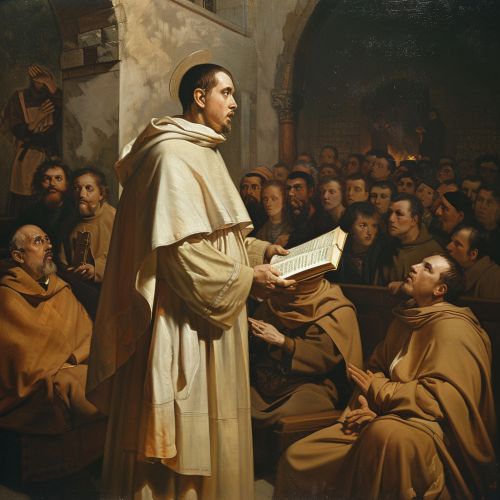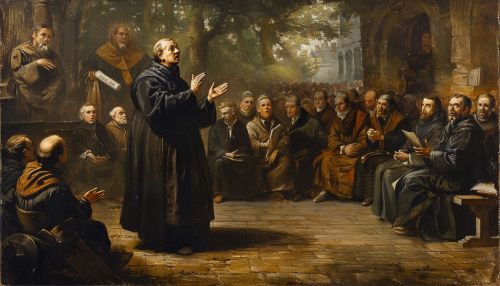Saint Norbert of Xanten
Early Life
Saint Norbert of Xanten was born around the year 1080 in Xanten, a Roman colony on the Lower Rhine in the Duchy of Lower Lorraine. His father, Heribert, Count of Gennep, was a member of the high nobility of the Holy Roman Empire, while his mother was from the powerful von Kessel family.
Education and Early Career
Norbert received his early education at the collegiate church of St. Victor in Xanten. Later, he studied liberal arts in the University of Paris, where he was exposed to the emerging scholastic philosophy. After his studies, he was ordained a subdeacon, a minor order in the Roman Catholic Church. He was then appointed to a canonry at the collegiate church of St. Victor in Xanten, a position that provided him with a comfortable income.
Conversion and Founding of the Premonstratensian Order
In the spring of 1115, Norbert was thrown from his horse during a thunderstorm, an event that led to his conversion. He renounced his appointment at St. Victor and gave away his wealth to the poor. He was then ordained a priest and began to preach in the diocese of Cologne.
In 1120, Norbert founded the Order of Canons Regular of Prémontré, also known as the Premonstratensians or the Norbertines. The order followed the Rule of St. Augustine and was characterized by its commitment to both contemplative life and active pastoral work.


Archbishop of Magdeburg
In 1126, Norbert was appointed Archbishop of Magdeburg, one of the most important ecclesiastical positions in the Holy Roman Empire. As archbishop, he was a strong advocate for clerical discipline and reform, and he worked to strengthen the authority of the church in the face of secular power.
Death and Canonization
Norbert died on June 6, 1134, and was buried in the Norbertine abbey church in Magdeburg. He was canonized by Pope Gregory XIII in 1582. His relics were transferred to the Premonstratensian abbey in Strahov, Prague, in 1627, where they remain today.
Legacy
Saint Norbert's legacy is primarily associated with the Premonstratensian Order, which continues to follow his ideals of combining the contemplative life with active pastoral work. The order has spread worldwide, with communities in Europe, North America, South America, Africa, and Australia.
